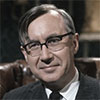The Danger of Stagflation
The American electoral system has never been designed to protect sound finance, and it has become more dangerous as the federal government and the Federal Reserve itself have become more skillful at manipulating the economy of the United States. The process of running before every gust of wind reached its limits under Alan Greenspan, who always chose to inflate, rather than deflate, a bubble. His successor, Ben Bernanke, is more cautious, but has made no attempt to reverse the Greenspan policy.
There has not been a chairman of the Federal Reserve Board with sound monetary instincts since Paul Volcker resigned in 1987. It was Volcker who brought the dollar back from the brink of hyperinflation in 1987.
On May 14, Volcker testified before Congress. Scattered around the monetary world, and particularly influential in Europe, there is a group of central bankers who admire Volcker, as I do myself, and share his analysis of the present situation. The Volcker analysis is very similar to that of the European Central Bank, and to that of Mervyn King, the governor of the Bank of England.
Volcker testified that the Fed ought now tackle the threat of inflation more forcefully. He is particularly concerned about the danger of a return to the conditions of “stagflation” of the 1970s. The Bank of England also expects that the next two years will see the pressure of rising inflation combined with low rates of growth. In the 1970s, this unpleasant combination of economic trends resulted from the loose monetary conditions of the early 1970s and the oil shocks of the mid-1970s.
Those who experienced the 1970s were taught a painful lesson about the negative effects of inflation. In standard monetary theory, some emphasis is given to the initial phases of inflation, in which an increasing money supply funds economic expansion and tends to cause booms, bubbles, and speculation.
Less attention is usually given to the second stage of inflation, in which prices rise; interest rates are increased; and economic growth rates, after an acceleration, begin to slow down. There is an illusion that inflation is good for growth; that is true of the first stage, but only of the first stage. Staglation, in which rising prices are accompanied by reduced growth, comes as a second stage.
Volcker warned Congress that he saw a “resemblance” between present monetary conditions today and those of the early 1970s, when the economy had an overall tendency toward rising prices, including big increases in energy and agricultural prices. He observed, “If we lose confidence in the ability and the willingness of the Federal Reserve to deal with inflationary presses and to sustain confidence in the dollar, we’ll be in real trouble.”
On the same day, the Bank of England published its latest quarterly forecasts and came to much the same conclusions. The bank’s inflation projections will not return to the 2% target figure until early 2010, which suggest that it will have no room for rate cuts until then.
Britain and the United States have different political cycles. The next presidential election in the United States will come nearly two years earlier than the next British general election; the latest date for a British general election will be June 2010. The Bank of England’s economic forecast suggests that there is little chance of interest rate cuts much before that time. The government’s reluctant tax cut on the lowest income tax band will strengthen the bank’s hand in keeping interest rates at their present level.
Mervyn King observed that “The consequences of price increases would be a squeeze on real take-home pay that will slow consumer spending and output growth, perhaps sharply.”
There exists what might be termed the Volcker consensus that inflation has returned as the real threat to world economic conditions. This consensus includes Paul Volcker himself, the Bank of England, and the European Central Bank. It does not include Ben Bernanke, the Fed, or the current president of the United States. After November, we may find out whether it includes the next president of the U.S.
Regards,
Lord William Rees-Mogg
May 15, 2008


Comments: